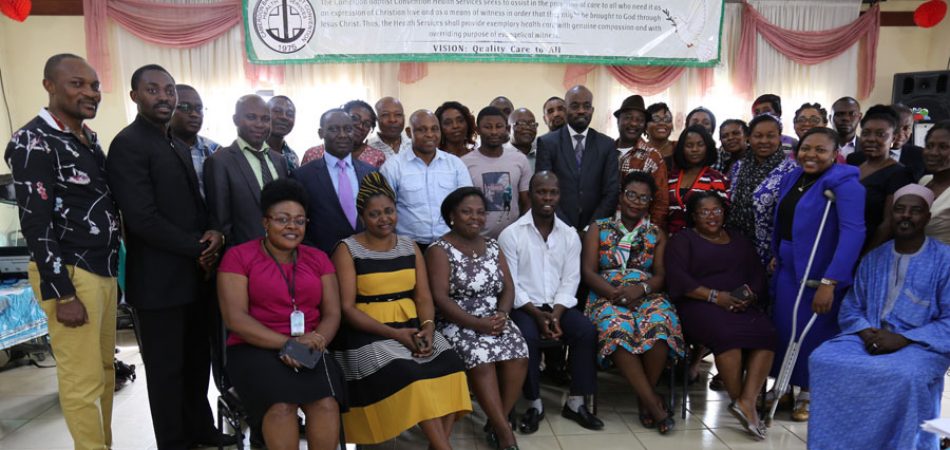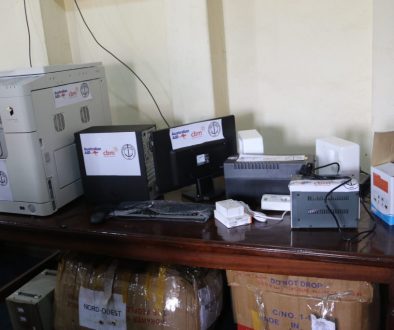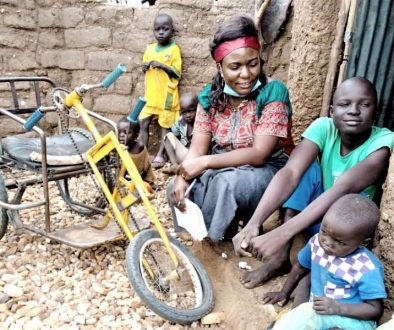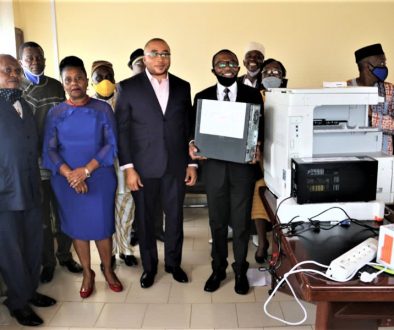CBC Health Services, Partners Commit to fighting Gender-Based Violence in Cameroon
Women with disability have in recent times faced varying abuses from the community, which has attracted the attention of organizations working on gender-based violence (GBV) and related issues. One of such organizations has been the CBC Health Services which has remained passionate in fighting against gender based violence through advocacy, interventions, and partnerships with other NGOs, Civil Society Organizations, and government ministries.
One of its recent interventions that won the funding of Humanity and Inclusion (HI) is the development of Standard Operating Procedures (SOP) for preventing and responding to Gender Based Violence (GBV). The development of the SOP which was done within the context of the Group for Rehabilitation (GRID) Network, a project of the SEEPD Program, was informed by the number of similar cases that have been reported or identified by community workers in the Northwest Region (NWR) of Cameroon. The SOP was developed with contributions from representatives of different organizations and professional groups to facilitate similar interventions in the future.
Against this backdrop, a two day capacity building workshop on the use of the SOP for management of sexual violence against women with disability in the NWR held for stakeholders working on gender based violence related issues from April 3-4, 2019 at the Baptist Center Nkwen, Bamenda.
The workshop was a platform to build capacities of stakeholders in gender and disability mainstreaming, advocate the use of the SOP and also to create two GRID Gender DID Groups in Bamenda 1 and 3 Sub-divisions. This initiative was to be realized by all stakeholders in the referral chain in case management of GBV in the two sub-divisions in particular and the Northwest Region in general in a bid to improve access to comprehensive GBV services for survivors with disabilities.
At the start of the workshop, the Chief of Administration and Finance (CAF) of the CBC Health Services, Mr. Warri Denis applauded the efforts of the stakeholders for their commitment to fighting GBV in the Region. He regretted the high rate of abuse amongst women and girls with disability which has augmented the commitment of CBC Health Services in sourcing for funding to put in place networks that can provide collective efforts to fight GBV. The CAF appreciated HI for funding the project, Making IT Working (MIW), which he hopes will create an impact in the lives of women and girls with disability.

On his part, the Coordinator for Services of Persons with Disability (SPD), Awa Jacques Chirac schooled participants on the overview of the CBC Health Services and its work in the area of disabilities which has given a lot of attention to women and girls with disabilities by improving on their quality of life through its empowerment programs as well as microloans. The Program Manager, who has put in place a committee to manage the MIW Project under his supervision, underlined the importance of having a robust network to combat GBV. “We are building a community of practice which sacrifice of time and resources is needed,” Chirac concluded.

The chairperson of the MIW committee a woman with disability, Armelle Nonying, treated participants to her testimony on how she was abandoned because of her disability. “Even though my parents were wealthy and vibrant enough to send me to school, they still did not because of my disability. To them, investing in my siblings without disability was worthwhile.
Am happy because of the capacity workshops organized by the SEEPD Program in recent years, I was able to advocate for myself and finally, I gained education which has made me an independent woman today”.

The Gender and Child Protection Officer of the SEEPD Program, Nsono Josephine, the Senior State Counsel for Mezam, Justice Fon Ignatius and one of the conceivers of the SOP, Dr. Louis Mbebih all equipped participants with skills on abuse management cases following the SOP. In four different groups, participants identified their related areas of services provision like legal, health, empowerment, psychosocial support, etc and discussed ways in which they can better network and refer cases of abuse to the appropriate services in order to have better and cost effective results. Not only did he drill participants on the role of law in GBV, but also, Justice Fon Ignatius Mbafor pledged the support of his office to ensure survivors with disabilities get justice.
At the end of the group work, participants pledged their commitment to work in line with the SOP given that it is the best way to go. They created WhatsApp groups and other platforms which will help them work in synergy.
The workshop brought together 39 participants drawn from Non-Governmental and Civil Society organizations, government delegations amongst who were the NW delegates of Women Empowerment and the Family and Social Affairs as well as representative from the Regional Delegation of Health. All the officials promised to put in place measures at the level of their delegations to strengthen the network.



